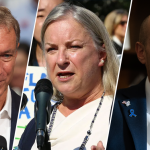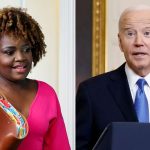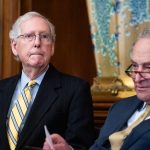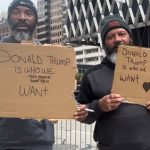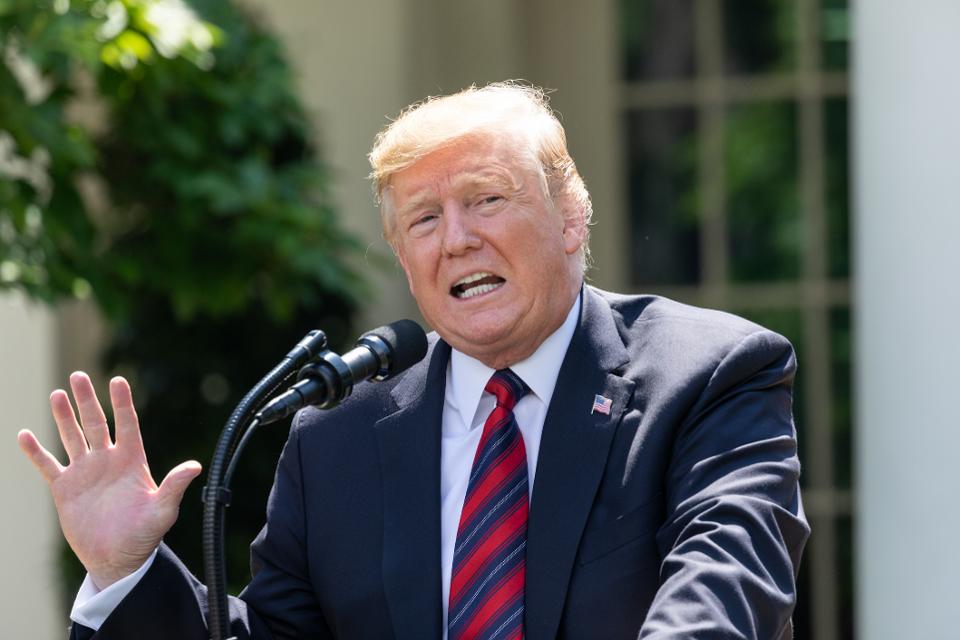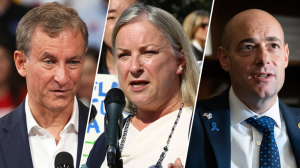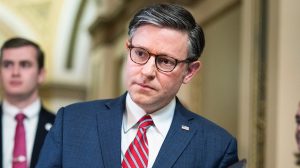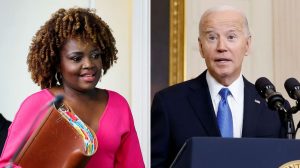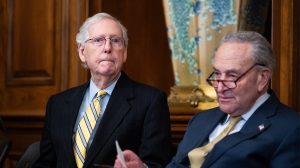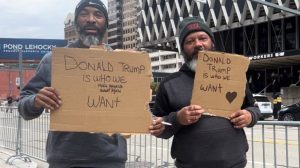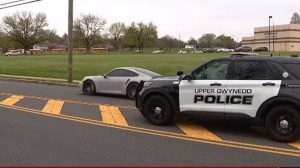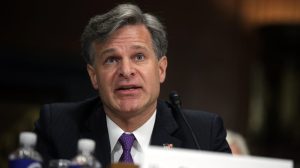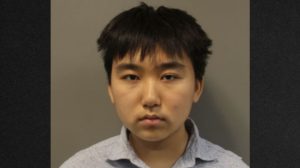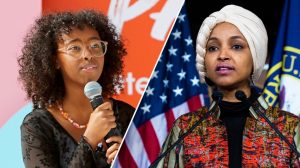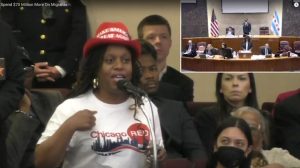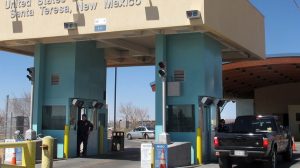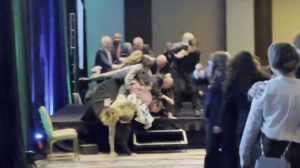President Donald Trump’s deputies are drafting a dramatic range of fresh regulations to curb the Fortune 500’s use of illegal migrants and visa workers.
The June 30 announcement of the “Spring 2020 Unified Agenda of Regulatory and Deregulatory Actions” shows officials are planning to overhaul the H-1B program and to narrow the huge B-1/B-2 pathway for illegal migrants. The agenda also shows officials want to withdraw work permits from the spouses of H-1B workers, and even set some curbs on the two huge “Practical Training” programs that deliver 500,000 foreign graduates into U.S jobs each year.
“We hope that Trump will follow this plan,” said John Miano, a lawyer with the Immigration Reform Law Institute. He continued:
If he wants to get reelected, this is the kind of thing he needs to do. People elected Trump so that he would stand up to the oligarchs, and there hasn’t been a whole lot of that so far. If he follows through, chances are that he gets reelected. If he lets it fall by the wayside, the voters will stay home.
Grassroots pressure from U.S. professionals has pushed the president to curb companies’ use of visa workers, despite opposition from top level business groups, say White House insiders.
The announcement includes a proposed rule for “Strengthening the H-1B Nonimmigrant Visa Classification Program,” which is to be released by December. The plan says:
The Department of Homeland Security (DHS) will propose to revise the definition of specialty occupation to increase focus on obtaining the best and the brightest foreign nationals via the H-1B program, and revise the definition of employment and employer-employee relationship to better protect U.S. workers and wages. In addition, DHS will propose additional requirements designed to ensure employers pay appropriate wages to H-1B visa holders.
The reform would award new H-1B visas to the Fortune 500 companies which offer the highest salaries, according to acting deputy DHS chief Ken Cuccinelli. The plan would also deny H-1B workers to large and small companies that refuse to pay at least median wages, so helping to keep jobs open for young American graduates, he told Breitbart News June 22.
The unified agenda also says the DHS will post a draft regulation in September to withdraw work permits from the spouses of roughly 250,000 H-1B workers who have been approved for green cards. This subset of H-1B workers is being allowed to stay and work — mostly for Fortune 500 companies and their subcontractors — many years after the expiration of their six-year H-1B visas.
In 2015, these H-1B spouses were allowed to get work permits under a regulation pushed through by President Barack Obama. The goal of Obama’s spousal work permit, dubbed H4EAD, was to encourage the visa workers to stay in the U.S. labor market, so forcing down Americans’ wages. The notice says:
On February 25, 2015, DHS published a final rule that amended DHS regulations to extend eligibility for employment authorization to certain H-4 dependent spouses of H-1B nonimmigrant workers who are seeking employment-based lawful permanent resident (LPR) status. DHS is publishing this notice of proposed rulemaking to propose to remove from its regulations this class of aliens for eligibility for employment authorization.
Business groups have leaned on Trump’s deputies to block the H4EAD repeal for several years. The lobbyists may also block the September release — or hold up the repeal in 2021 with lawsuits and additional political pressure.
The federal agenda is published twice a year, and often includes many regulations that never get approved, said Miano. “If there’s no deadline, it is probably never going to happen,” he said.
Agency officials can sometimes reform programs without rewriting regulations, he said. For example, agency officials can raise the minimum wages paid to H-1B workers without posting new regulations, he said.
But often enough, lobbyists carefully shape Congress laws so that regulations cannot fix the problems, Miano said. For example, the labor department can do little to fix the “Labor Condition Application process that companies use to pretend that they can not find Americans for H-1B jobs, he said.
Immigration lawyers are alarmed by some of the regulations. “This has TWICE as many new immigration regulations as the last one,” said a tweet by Sarah Pierce, a pro-migration advocate at the Migration Policy Institute.
The State Department is taking steps to revamp the B-1/B-2 visa which now allows tens of millions of foreigners to make repeated, six-month trips into the United States. There is growing evidence that this visa is enabling and covering up a massive inflow of foreign migrants who quietly fly in to perform short-term blue-collar and white-collar jobs.
Another B-1/B-2 draft regulation would “modify the period of admission and extensions of stay for such visitors. The purpose of this rule is to better align the admission/extension period for these visitors with the requirements set forth in the Immigration & Nationality Act.”
In July, the agency will announce “a pilot program under which consular officers will require certain individuals applying for visas as temporary visitors for business or pleasure (B-1/B-2 visas) to post a Maintenance of Status and Departure Bond as determined appropriate by the consular officer as a condition of visa issuance, to ensure the individual will not overstay his or her period of lawful admission.”
One notice about the B-1/B-2 visas says officials pan to narrow the “B-1 in lieu of H-1B” visa, which has been used by Boeing and other companies to import workers for short-term contracts:
The Department proposes to eliminate two sentences from its regulation governing nonimmigrant visitors for business, 22 CFR 41.31(b)(1). The current regulation states that an alien seeking to enter for employment or labor pursuant to a contract or other prearrangement is required to qualify under the regulation governing H nonimmigrant temporary workers or trainees. The Department proposes to remove this language because the regulation states explicitly that permitted use of a B visa does not include local employment or labor for hire, so this narrower statement is confusing and potentially misleading. The Department also proposes to eliminate from the current regulation the statement that an alien of distinguished merit and ability seeking to enter the United States temporarily with the idea of performing temporary services of an exceptional nature, requiring such merit and ability, but having no contract or other pre-arranged employment, may be classified as a nonimmigrant temporary visitor for business.
One entry says DHS is working on changes to the huge Optional Practical Training and Curricular Practical Traning programs. “ICE will amend existing regulations and revise the practical training options available to nonimmigrant students on F and M visas.” The “Notice of Proposed Rule Making” is slated for release in December 2020, shortly after the election or the defeat of Trump.
Universities and business leaders say the practical training programs bring the “best and brightest” to work in the United States. But the inflow of foreign workers include many unskilled foreign graduates, and they tend to push innovative Americans out of promising jobs.
Former Google chief Eric Schmidt offers the usual bait-and-switch:
Tells Trump the nation needs genius immigrants – but fights to replace outspoken US graduates with compliant, low-skilled #h1B college-workers.
It's all about executives vs professionals.https://t.co/fv5G0FaQYs— Neil Munro (@NeilMunroDC) June 26, 2020
The State Department is revising a draft regulation from January 2017 that would impact the huge Summer Work Travel that supplies summer workers to Disney, Hilton, and other companies that operate in resorts. “The Department plans … to further protect the health, safety, and welfare of exchange visitors on the SWT program and placing additional restrictions and requirements on sponsors implementing the SWT program,” the plan says. The final rule is to e issued in June 2020, said the notice.
DHS is preparing regulations on the Special Immigrant Juvenile program, extending the deadline for awarding work permits to asylum applications who are waiting for court dates, narrowing the award of work permits to asylum seekers, and raising fees,
DHS is also planning to write sponsorship rules to ensure migrants do not use federal services. “If an immigrant sponsored in the affidavit receives certain public benefits, the public benefit granting agency providing the benefit may request that the sponsor repay the cost of those benefits. That agency can also sue the sponsor for failure to repay the benefits,” the document says.
The Department of Labor is eyeing changes to the H-2B visa-worker program for blue-collar jobs, chance the critical “Labor Condition Applications for visa workers, changes to the H2A farmworker program. “The final rule will include necessary legal changes and technical improvements to modernize and streamline the overall administration of the program since the current H-2A regulation was published in 2010,” said the H2A page.
On June 22, White House officials announced plans to change the LCA rules to prevent companies from hiring H-1B workers to bump Americans out of jobs.
Joe Biden says he will end Trump's moratorium on H-1Bs. "They have built this country.'
Donors & executives prefer #H1B b/c they are compliant & cheap, unlike expert US professionals.
600k H-1Bs hold jobs that would go to innovative US graduates. https://t.co/pL7yugEpHe— Neil Munro (@NeilMunroDC) June 30, 2020
Story cited here.
Scroll down to leave a comment:

